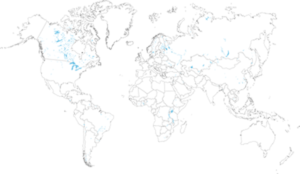
Emerging technologies such as AI, machine learning, and blockchain are having a profound impact on modern society. They are changing the way we work, communicate, and even think about the world. These technologies are disrupting industries and creating new opportunities for innovation and growth. At the same time, they are raising important ethical and legal questions about their use and impact on society. Let’s take a look at the Ai, it is already taking the human job from us. AI has already had a significant impact on industries like finance, healthcare, and transportation. It’s being used to analyze data, make predictions, and automate tasks. For example, AI is being used to detect fraud in financial transactions, diagnose diseases in healthcare, and predict traffic patterns to improve transportation. AI is also being used to create art, music, and even to create other things which we humans have succumbed to already. These are just a few examples of the ways that AI is changing the world as we know it. What do you think of the impact of AI so far?
In today’s rapidly evolving world, the influence of emerging technologies on modern society cannot be understated. From artificial intelligence and virtual reality to biotechnology and renewable energy, these advancements are reshaping the way we live, work, and interact with the world around us. This article aims to explore the profound impact of these technologies on various aspects of our lives, ranging from healthcare and education to business and entertainment.
The Role of Artificial Intelligence
Artificial intelligence (AI) has emerged as a pioneering force in the realm of technology, revolutionizing industries and transforming the way we approach problem-solving. From autonomous vehicles and predictive analytics to personalized virtual assistants, AI has permeated nearly every facet of our daily lives. It has facilitated unparalleled advancements in healthcare, enabling more precise diagnostics, personalized treatments, and drug discovery. Moreover, in the realm of business, AI has optimized operations, enhanced customer experiences, and revolutionized decision-making processes.
The Ethical Considerations of AI
However, as AI continues its rapid progression, ethical considerations have come to the forefront of public discourse. The potential impact of AI on employment, privacy, and societal inequality has raised important questions that necessitate careful consideration. Ethical frameworks that govern the development and implementation of AI must prioritize transparency, accountability, and the safeguarding of human rights. Additionally, the responsible and ethical use of AI in governance and decision-making processes holds the key to ensuring that these technologies serve the collective good of society.
The Advent of Virtual Reality
Another technological innovation that has captured the imagination of the public is virtual reality (VR). This immersive technology has transcended its initial application in entertainment and gaming to permeate diverse fields such as education, healthcare, and engineering. VR has enabled experiential learning, providing students with interactive educational experiences that transcend traditional boundaries. In healthcare, VR has proven instrumental in medical training, therapeutic treatments, and simulating complex surgical procedures. Its potential in rehabilitation and mental health interventions continues to expand at a rapid pace.
Challenges and Opportunities in Biotechnology
The field of biotechnology has witnessed remarkable advancements, paving the way for groundbreaking innovations in healthcare, agriculture, and environmental sustainability. From gene editing and regenerative medicine to biofuels and sustainable agriculture, biotechnological breakthroughs have the potential to address pressing global challenges. However, the ethical implications of gene editing and the responsible use of biotechnological applications in agriculture require careful oversight and regulation. Striking a balance between innovation and ethical considerations is paramount in leveraging the full potential of biotechnology for the betterment of humanity.
Renewable Energy and Sustainable Development
In the realm of sustainability, emerging technologies have played a pivotal role in driving the shift towards renewable energy sources and sustainable practices. From solar and wind power to advanced energy storage solutions, these technologies have laid the foundation for a more sustainable and environmentally conscious future. The integration of smart grid technologies and energy-efficient systems has bolstered the resilience of energy infrastructures and mitigated the impact of climate change. The collective commitment to research, development, and deployment of these technologies is integral to achieving a harmonious coexistence with our planet.
Addressing Cybersecurity Challenges
Concurrently, the proliferation of emerging technologies has engendered a pressing need to fortify cybersecurity measures. The interconnected nature of modern societies and the increasing reliance on digital infrastructure raise concerns about cybersecurity threats and vulnerabilities. Safeguarding critical systems, personal data, and intellectual property from cyber threats demands collaborative efforts across industries and nations. Robust cybersecurity frameworks, proactive threat detection, and regulations that safeguard privacy rights are essential in navigating the digital landscape securely.
The Human-Machine Collaboration
The convergence of human and machine capabilities through emerging technologies has given rise to a new paradigm of collaboration. As AI algorithms augment human decision-making processes and robotic systems streamline industrial operations, the potential for enhancing productivity and creativity is immense. However, fostering a harmonious collaboration between humans and machines requires careful consideration of ethical, legal, and societal implications. Cultivating a workforce that is adept at working alongside automated systems and leveraging their collective potential stands as a pivotal opportunity in shaping the future of work.
The pervasive impact of emerging technologies on modern society underscores the transformative potential of innovation. As these technologies continue to evolve, it is imperative to prioritize ethical considerations, sustainable practices, and inclusive frameworks that serve the common good. The responsible adoption, regulation, and deployment of emerging technologies hold the key to harnessing their full potential for the betterment of humanity and the advancement of our collective well-being. Through collaborative endeavors and informed decision-making, we can navigate the multifaceted landscape of emerging technologies with resilience, adaptability, and a collective vision that embodies progress and inclusivity. In this case, we’d need to adapt to our modern day technology because it has come to stay and even improve on its different ways and uses.
With no doubt, it has been of great use to students, learners and even to the society at large. Should we even talk about big firms and companies? How modern technology has made things so easy for them, even those who are their workers .



